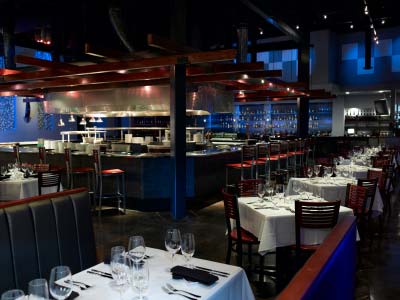Are you looking to buy an alcoholic beverage in the Lone Star State? Unfortunately, it is not as simple as heading to the nearby grocery store or restaurant as the laws in Texas vary significantly from county to county, city to city and even block to block. Businesses looking to secure a Texas alcoholic beverage license will unfortunately find the process difficult or impossible in many places as 11 of the state’s 254 counties are completely dry, and 194 are partially dry.
Plano, which is situated mostly in Collin County about 20 miles north of Dallas, has been one of the more interesting cities as far as confusing laws go. Fortunately, those laws were simplified with the recent opening of the city’s first liquor stores. Prior to that point, you had to visit one of the city’s grocery stores that sold beer and wine to pick up alcoholic beverages; those were located in the newest 40 percent of Plano’s 72 square mile metro area.
Patrons who had visited restaurants in Plano were required to join a private club prior to ordering alcoholic beverages. This is still the case in a variety of communities throughout Texas, and it can cause quite a bit of confusion and sometimes frustration to those not expecting to have to hand over a driver’s license and join a club so that alcoholic beverages may be ordered.
This process is not easy on businesses both as the cost of keeping detailed records can add up to thousands of dollars every year, and the Texas Alcohol Beverage Commission regularly performs undercover checks to ensure that the laws are being followed. The Texas Restaurant Association has been working for years to eliminate this practice, which does not appear to create any jobs, tax revenue or otherwise provide any discernible benefits.
However, many business owners looking for the services of a Houston liquor license service in order to help them acquire a Texas liquor license are located in areas that do allow open alcohol sales.
Conversely, grocery stores in dry counties lose business as shoppers will oftentimes drive to a place where they can buy alcoholic products and then do much of their regular grocery shopping there as well. In fact, for every dollar lost in beer or wine sales, it is estimated that an additional three is lost in general sales. This also impacts the amount of taxes that can then be paid by those businesses to the local city and county.
Another disturbing issue is that dry Texas counties have more than three times as many alcohol-related traffic fatalities than those that allow alcohol sales. This is due to people having to leave the county in order to purchase and consume alcohol and then making the mistake of driving home while impaired.
Counties generally fall into one of four categories. Some are completely dry, others only sell 4 percent beer, another county allows the sale of alcoholic beverages with up to 14 percent alcohol content while other counties sell distilled spirits. Even more confusingly, many counties and sometimes even cities fit into a variety of these categories depending on where in that locale the business is located. However, if a county is dry, cities within that county do not have the option to become wet.
One example of how little the difference can be between dry areas and wet ones occurred when a Hooters restaurant opened during Plano’s mostly dry era. It ended up being just a few feet too close to a church, and alcohol sales were not allowed. However, the business simply moved its front door in order to “move” the business far enough from the church in order to legally sell alcoholic products.

